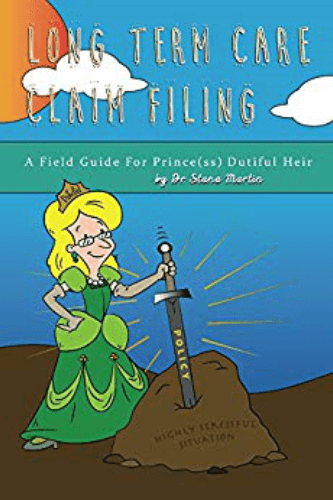The sandwich generation has never felt the pinch of “sandwiched” than when we are caring for seniors in our lives.
The situation gets worse so slowly that we are often uncertain where the line is – do we hire help now? Or wait a bit longer? When you couple that with an older person’s natural resistance to change, it is easy to wear yourself out on this care journey quite before you realize how bad it has become.
Knowing when it is time to hire professional help in care for a loved one is not easy. There is no hard and fast rule. Every family is different and every human being has different tolerance for care demands. There is no single measure by which you can say, “Now! Now we are at the point of needing help.”
That said, a few guidelines may be useful.
Self-care – care giving personalities are often the last ones to care for themselves. But medical communities are now diagnosing something called “care giver syndrome” where a care giver’s health is collapsing faster than the person they are caring for. So if you have found your own self-care time is diminishing, or if you have not prioritized that for yourself at all, then you are over the line. It is time to find out some other way to manage senior care so that you can do self-care. No one can pour from an empty cup – you have to have margin in your life for self-care. If you have emptied yourself out, you are no longer truly helping the person you are caring for. It is time…
Depleting your own finances – have you started paying for the care of someone in your life in order to keep them at home or safe? This is fine so long as you are paying for care out of your excess. But if you are using your income, taping your retirement portfolio, or otherwise jeopardizing your own financial well-being, then you must take a careful look at this and see if it is time to engage an outside voice to give you good counsel. We often get so emotionally entangled in the care of those we love, we fail to see that we have crossed the line into damaging areas. Women, research has shown, are particularly vulnerable to giving more than they should to parents or adult children. Elder law attorneys, financial advisors, and counseling are all good places to help sort thru the complex, and interlocking emotions of care giving and money. If you have any doubts about the way you are managing your own finances vis-à-vis the care of someone else, it is time…
Care and Dignity of Your Loved One – This one turns focus away from you, the care giver, to the person being cared for. Are they really getting the type of personal and professional nursing care they need? For instance, research has proven folks with dementia can often retain mental ability better with exercise and interaction. Keeping someone at home isolated from others with only the TV as company may be accelerating their condition. This is, of course, mitigated by many other factors – but the point still stands: what is the best type of care for this person and his/her condition? Another example may make this more clear. A recent client finally decided to move a loved-one to a locked care unit due to progressive psychosis. Though they called and checked on him through the day and stopped by frequently, the final straw came when neighbors called the police in the wee hours of the night to report him knocking on their door and threatening to harm them if they didn’t stop tampering with his gas line (he could smell gas and was certain they were doing it deliberately – there was no evidence of a gas leak, by the way). Clearly for he and his neighbors’ safety, it was time for more professional care giving.
Knowing when it is time to hire professional care is difficult. Finances and emotions get involved and we are often unable to be dispassionate about care decisions. This can be exacerbated if multiple family members cannot agree on the right level of care. Taking a hard look at (1) how well you are doing in caring for yourself and (2) how well you are doing caring for that person is often the first step in determining if it is time. There are no set rules – every family is different (different values, resources, and care needs). The only wrong thing is to slavishly stick with the same decision. Periodic reflection and bringing in outside counselors will often help you make the best choice for you and for the senior in your life.
Stana Martin, PhD, founded Mrs LTC to provide a top-quality resource for clients and customers who need help with long term care claims or insurance comparisons.
Questions?
Contact - Mrs. LTC
Long Term Care Claims & Insurance
Question about a Claim?
Shopping for coverage?








